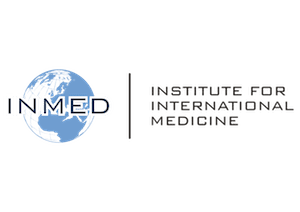Apologetics Speaker Bureau
INMED is pleased to provide our Apologetics Speakers Bureau. Please Contact INMED to explore any of these presentation opportunities.
Nicholas Comninellis
MD, MPH, DIMPH
INMED President and Professor
Nicholas Comninellis, President and Professor at the Institute for International Medicine, offers presentations on Christian apologetics for university audiences.
Summary: The historical fact of the bodily resurrection of Jesus Christ from being dead is critical to his authenticity and credibility. If he actually did return to physical life, this is a solid vindication for faith in him. If he did not, faith is useless – as the disciple Paul explained. What is the evidence for the resurrection of Jesus Christ? Lines of evidence include prophecies fulfilled, accounts by historians of that time, and testimony of the disciples – for which most lost their lives. The latter evidence is most compelling, for people may be willing to die for a conviction they believe to be true. But people will NOT die for a conviction they know to be false. View the video presentation of What Good Is a Dead Messiah?
Summary: Life is full of decisions, especially for younger persons. “What should I study? What career is just right for me? Should I get married now or wait?” This presentation illuminates the decision-making process and the strategies for making excellent long-term choices. Real-life stories demonstrate outcomes based on good judgment coupled with a unique perspective on the will of God. View the video presentation of Where Do I Go from Here?
Summary: Did life begin as a random accident? Why is evolution relevant today? Was Darwin right about evolution? How old in fact is the earth? Could living creatures actually be designed? Are our professors misleading us? This session will examine the scientific evidence for the origin of life, evolution of living creatures, and for special creation. It will challenge conventional teaching with provocative, evidence-based answers. Based on the book Darwin’s Demise, co-authored by Nicholas Comninellis & Joe White of Kanakuk Kamps.
Summary: The historical reliability of the events recorded in the Bible is critical to the credibility of faith in Jesus. Were the New Testament writers accurately describing the events they witnessed? Is our Bible today an accurate copy of those original New Testament letters? What process was used to identify which letters to include in the New Testament? What is the message of the Bible that’s causes so much controversy & inspired so many lives?
Summary: Jesus’ claims set him apart from other notable philosophers. Jesus claims to be God. Jesus claims to forgive sins. Jesus claims to be the only way to eternal life. Jesus claims to raise from death to life. What personal action will we take on the claims of Jesus?
Summary: What is the meaning or intention of the word “normal?” Why is this question important? Scripture reveal insights into the norm for followers of Jesus. Some include Matthew 5: 1-10 “Beatitudes,” Romans 12:11-13 “Faithful in prayer,” James 1:27 “True Religion,” 1 John 2:1-6 “Live as Jesus did.” Consider also the norms modeled by Paul of Tarsus, the women following Jesus, Zacchaeus, and Barnabas. How will you apply these norms into your own life?
